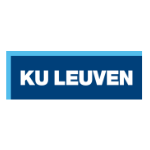Wearable neuromodulation
The Neuro Wear project is designed to create a wearable neurotransmitter that uses transcranial current stimulation (TCS) to help patients suffering from neurological or psychiatric diseases, such as movement disorders, tinnitus, chronic pain or depression. The innovation can make it easier for these patients to get around by themselves, and to take care of themselves.
TCS technology involves delivering low-current electricity to a patient’s scalp. It is a noninvasive means of neuromodulation, or altering nerve activity through outside stimulation.
TCS has the potential to treat brain disorders that are currently untreatable or require invasive surgery. Lab-based studies show TCS can control tremor in movement disorder patients.

A working prototype wearable neural stimulator using Transcranial alternating current stimulation (tACS) is already available, and the first results in patients have been obtained. During this year and the near future, the Neuro Wear team is working to obtain a CE Mark as certification for the wearable neural stimulator and to conduct a larger scale clinical trial.
In the longer run, the project team is seeking to evaluate and refine TCS effectiveness in treating movement disorders in real-world environments and to prepare the therapy for transfer to market.
Members

Partner classification: Education, Research
KU Leuven (together with University Hospitals Leuven) is a research-intensive, internationally oriented university that carries out excellence-driven research in health and care and is dedicated to build bridges between science, society and industry.


CLC/InnoStars: UK-Ireland
Partner classification: Education, Research
Trinity College Dublin is Ireland's leading University and has a number of activities relevant for EIT Health: School of Nursing & Midwifery, with a focus on Ageing & Intellectual Disability, Mental Health, Population & Community Health and Improving Health & Wellbeing of Women, Children & Families; Trinity Centre for Practice & Healthcare Innovation; Bioengineering & Advanced Materials: Trinity College Institute for Neuroscience & Global Brain Health Institute; TILDA - Irish longitudinal ageing study; School of Computer Sciences & Statistics with expertise in AI, digital content technology, augmented reality and statistics & data science; Learnovate: Innovation in EdTech and learning technology; ADAPT: Digital content and media innovation; Tangent, Trinity's Ideas Workspace: innovation and entrepreneurship education and start-up support; Trinity Business School Centre for Social Innovation; Science Gallery.
Trinity College Dublin
Trinity College Dublin, College Green, Dublin, Ireland
Key Activities in Research and Developement
Other research, Biomedical engineering, Life Sciences, Clinical research
Key Activities in Corporate Innovation
Med Tech, ICT
Key Activities in Social Innovation
Healthcare provision
Key Activities in Business Creation
incubation, Technology Transfer, Business coaching
Key Activities in Education
Business Schools, Entrepreneurship training, Technical faculties, Medical faculties, Healthcare professional education/training
